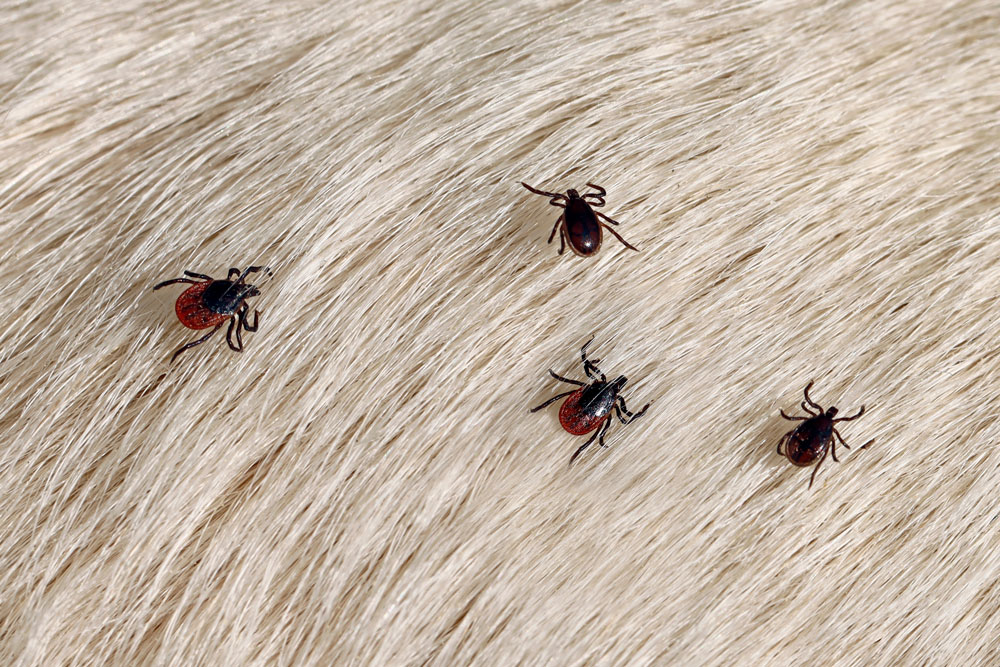Why Year-Round Parasite Prevention is Essential for Your Pet’s Health
Parasites are more than just an occasional nuisance—they are a constant threat to your pet’s health and well-being. Fleas, ticks, heartworms, intestinal worms, and mites don’t follow a seasonal schedule, and they certainly don’t take time off in colder months. Many pet owners mistakenly assume that parasites are only a concern during the warmer seasons, but in reality, they can survive and thrive all year long—especially in Florida’s mild climate, where warmth and humidity provide the perfect breeding ground for these pests.
At Driftwood Animal Hospital in Daytona Beach, Florida, we strongly advocate for year-round parasite prevention as the best defense against potentially life-threatening infections. Let’s explore why continuous protection is so important and how you can keep your pet safe.
Why Parasites Are a Threat Every Season
Parasites Don’t Have an “Off-Season”
Many pet owners believe that cooler weather means fewer parasites. However, this is not the case, especially in Florida, where mosquitoes, fleas, and ticks remain active throughout the year. Even if you live in a colder climate, some parasites can continue their lifecycle indoors, where temperatures are warm and comfortable.
- Fleas: These tiny pests reproduce rapidly indoors, infesting carpets, furniture, and pet bedding.
- Ticks: They can survive temperatures as low as 40°F, meaning that even brief outdoor exposure can put your pet at risk.
- Mosquitoes: The primary carriers of heartworm disease can persist in warm, humid environments, making heartworm prevention a necessity year-round.
- Intestinal parasites: Hookworms and roundworms can survive in contaminated soil for months, posing a risk to pets even in winter.
The Hidden Dangers of Parasites
Parasites aren’t just an itchy inconvenience—they can carry serious and even fatal diseases that affect both pets and humans. Below are some of the most dangerous parasitic threats:
1. Fleas: More Than Just an Itchy Problem
Fleas are one of the most common external parasites that affect pets. Not only do they cause intense itching, but they can also lead to secondary infections, allergies, and anemia, especially in young animals. Fleas can also transmit tapeworms to both pets and humans.
2. Ticks: Carriers of Deadly Diseases
Ticks aren’t just a problem for dogs—cats can be affected too. A single tick bite can transmit serious infections, including:
- Lyme disease – Causes joint pain, fever, and kidney complications.
- Ehrlichiosis – Can lead to lethargy, weight loss, and anemia.
- Rocky Mountain Spotted Fever – A potentially fatal tick-borne disease affecting both pets and people.
3. Heartworms: Silent Killers
Heartworm disease is one of the most preventable yet most devastating parasitic infections. It is transmitted by mosquitoes, making it impossible to avoid entirely. Once infected, heartworms grow inside the heart, lungs, and blood vessels, leading to lung disease, heart failure, and death if untreated. Heartworm treatment is costly and risky, making prevention the best approach.
4. Intestinal Worms: A Risk for Pets and People
Intestinal parasites, including roundworms, hookworms, whipworms, and tapeworms, can cause:
- Chronic diarrhea
- Weight loss and malnutrition
- Lethargy and anemia
These parasites can also be transmitted to humans, especially children who may come into contact with contaminated soil or pet waste.
5. Mites: Microscopic Menaces
Mites, including ear mites, Demodex, and Sarcoptes (scabies), can cause:
- Severe itching and hair loss
- Painful skin infections
- Ear infections that may lead to hearing loss
Many mite infestations go undiagnosed until they cause significant discomfort, making routine veterinary exams essential.
For more information on common parasites and prevention guidelines, visit the Companion Animal Parasite Council (CAPC).
Signs Your Pet May Have Parasites
Since pets can’t tell us when they’re feeling unwell, it’s important to watch for early warning signs of parasitic infections:
- Excessive scratching, biting, or licking
- Visible worms in feces or around the rear end
- Persistent coughing or difficulty breathing (a sign of heartworms)
- Lethargy and unexplained weight loss
- Patchy hair loss, scabs, or inflamed skin
- Dark specks (“flea dirt”) in the coat
If you notice any of these symptoms, schedule an exam at Driftwood Animal Hospital immediately.
The Risk to Humans: Zoonotic Parasites
Some parasites can be transmitted from pets to people, making prevention even more critical for protecting your family.
Common Parasites That Can Infect Humans:
- Roundworms & Hookworms: Can cause organ damage and skin infections in people, especially children.
- Ticks: Can transmit Lyme disease, Ehrlichiosis, and other tick-borne illnesses.
- Fleas: Can spread cat scratch fever and tapeworms.
- Giardia: A microscopic parasite that causes severe diarrhea in both pets and humans.
To reduce risk:
- Keep your pet on a year-round parasite prevention plan.
- Practice good hygiene, including regular handwashing.
- Clean pet bedding and vacuum frequently.
- Always pick up pet waste immediately.
How Parasite Prevention Works
At Driftwood Animal Hospital, we recommend comprehensive, year-round parasite prevention plans tailored to your pet’s lifestyle.
1. Testing & Diagnosis
- Annual heartworm testing (even for pets on prevention)
- Fecal exams to check for intestinal parasites
- Skin scrapings & ear swabs for mites and flea allergy dermatitis
2. Preventative Medications
- Flea & Tick Preventatives – Monthly oral or topical treatments to stop infestations before they start.
- Heartworm Prevention – Prescription preventatives that eliminate larvae before they become deadly.
- Deworming Protocols – Regular treatments for puppies, kittens, and adult pets to prevent intestinal parasites.
Prevention is easier, safer, and more cost-effective than treatment.
How You Can Protect Your Pet
Here are some simple steps to keep your pet parasite-free:
- Give monthly parasite preventatives—without skipping doses.
- Groom your pet regularly to check for fleas, ticks, or signs of skin irritation.
- Keep your yard clean and free of standing water to reduce mosquito breeding grounds.
- Wash pet bedding frequently and vacuum your home often.
- Schedule regular veterinary check-ups for early detection and parasite screenings.

Parasite Prevention at Driftwood Animal Hospital
Our veterinarians are committed to helping your pet live a long, healthy life—free of parasites. We offer:
- Customized prevention plans for dogs, cats, and multi-pet households.
- Comprehensive screenings to catch parasites before they cause harm.
- Veterinarian-recommended products proven to be safe and effective.
Protect Your Pet Today!
Parasites are a year-round threat, but with consistent protection, your pet can stay happy, healthy, and parasite-free.
Book an appointment at Driftwood Animal Hospital today!
Don’t let parasites take a toll on your pet—prevention is the key to a healthier life!








Leave A Comment